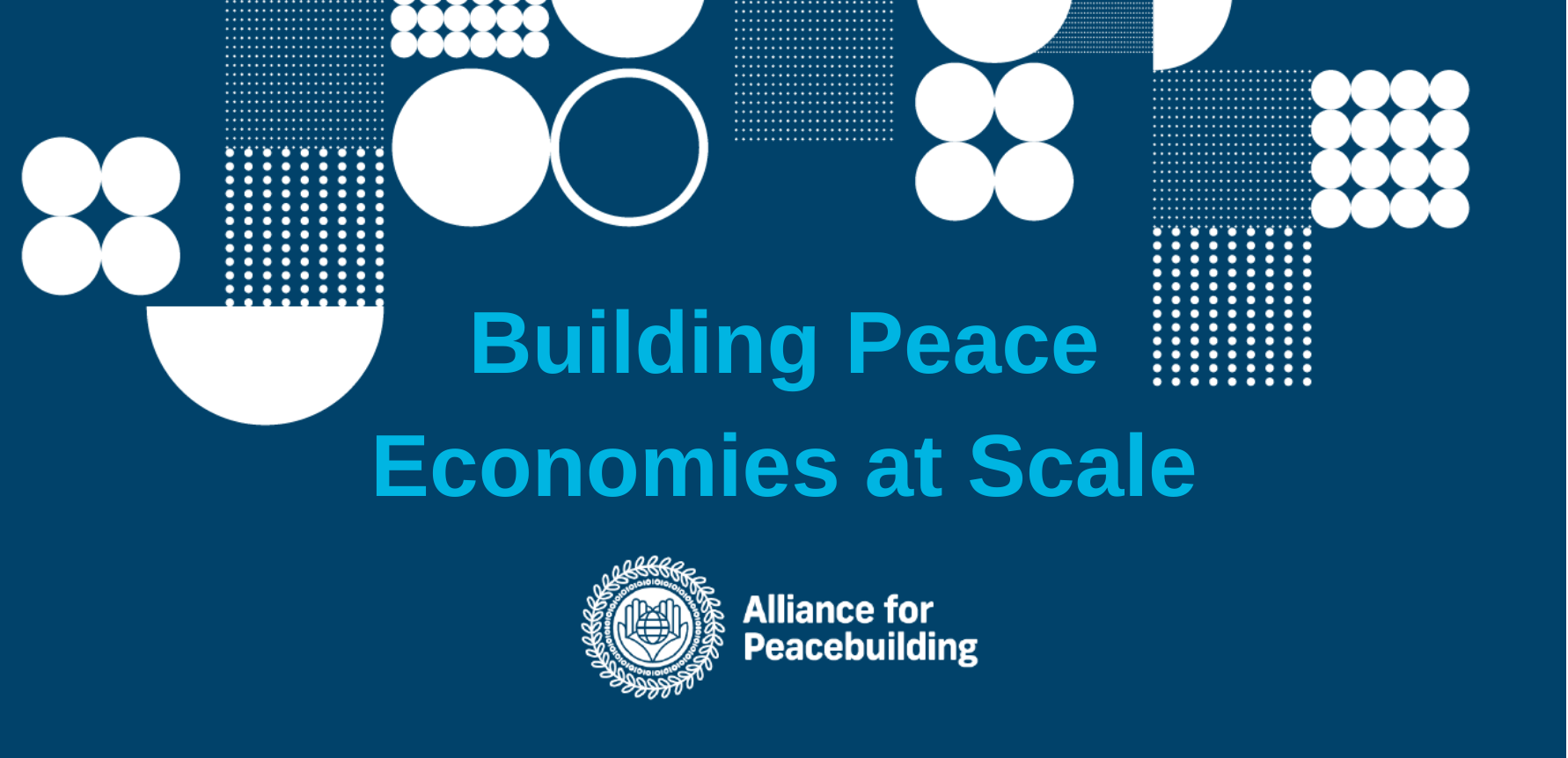Building Peace Economies at Scale, spearheaded by the Alliance for Peacebuilding, is a coalition built with the goal of designing a new way of sustainably funding peacebuilding work by aligning peacebuilding goals with business, investment, multilateral development, and venture capital. In an era of global volatility and decreasing international aid, this project seeks to build new funding infrastructure that positions peace as a strategic, measurable, and investable outcome. This work is grounded in the conviction that peace is not an abstract ideal, but a foundational investment in long-term economic stability and societal wellbeing, positioning peace as the most valuable and underutilized return on investment.
Our Mission
Through Building Peace Economies at Scale, AfP seeks to coordinate fragmented efforts across sectors into a unified, scalable approach across finance, policy, and development that strengthens social cohesion and addresses the drivers of violence. Conflict prevention and peacebuilding are both cost-effective and economically transformative. The International Monetary Fund found that every $1 spent on conflict prevention saves up to $103 in potential costs for humanitarian and securitized interventions. The Institute for Economics and Peace estimates the global cost of violence at $19.1 trillion in 2023—13.5% of the world’s GDP. However, current economic systems—driven by short-term profit, exclusionary practices, and fragmented decision-making—often reinforce the very conditions that lead to conflict.
By aligning investments and policies with peacebuilding and conflict prevention principles, the initiative helps create environments where trust can be rebuilt, grievances can be addressed through nonviolent means, and communities have a stake in shared prosperity. This project will foster inclusive economic systems that prioritize participation, equity, and long-term stability—countering exclusion, marginalization, and economic injustice, which are key drivers of conflict. Despite compelling evidence that peace is both cost-effective and essential for sustainable development, there is a lack of scalable infrastructure to align capital, policy, and community priorities around peacebuilding outcomes. Building Peace Economies at Scale seeks to fill this gap by creating the tools, partnerships, and shared standards necessary to make peace a central objective of economic decision-making and investment strategy.
Our Goals
Scaling peace economies requires reshaping markets, financial systems, labor structures, investment flows, supply chains, and the regulatory and policy frameworks that shape them to support inclusive growth, reduce inequality, foster participation, and prioritize long-term resilience—all while ensuring they do not exacerbate conflict grievances or exclusion. The project pursues a series of interrelated objectives.
The aim is to build a coalition of experts working in finance, government, venture capital, impact investment, development, philanthropy, and civil society by fostering trust and collaboration among actors who have not traditionally worked together, as no single organization, approach, or broad strategy can solve complex social challenges alone. Through convenings and structured dialogues, participants will identify leverage points—shared interests, complementary strengths, and opportunities for collective action—that can amplify impact.
The initiative seeks to elevate what works, spotlighting effective models and innovations that are ready to be replicated and scaled through case studies, lessons learned, white papers, and cross-sectoral discussions.
To enable broader adoption of peace economy principles, the initiative focuses on developing and disseminating standardized language, peace indicators, and metrics that can guide conflict-sensitive and peace-positive investments through policy briefs, recommendations, and relevant publications.
The initiative will upskill peacebuilders in financial literacy, supporting pathways for the peace field to contribute to the finance, corporate, and policy arenas through capacity-building workshops.
Through consultations with government and private sector leadership, the initiative will support embedding peacebuilding principles into risk analyses, environmental, social, and governance frameworks, and supply chains to inform evidence-based policies at the donor, government, and multilateral level.
Activities
This work has already begun with a collaborative convening held on June 24, 2025. This full-day gathering marked a critical first step toward building a cross-sector coalition committed to positioning peace as a measurable, investable outcome and creating the infrastructure necessary to support peace economies at scale. The interest in and turnout for this workshop affirmed that there is both a need and an appetite for a coordinated approach to building peace economies. Our goal is to move beyond fragmented efforts and begin designing the architecture for peace economies, not just as a one-off event, but as the launch of a durable coalition to shape and scale this work globally.

